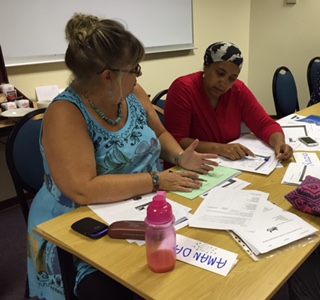My colleague, Sharon Silverman, and I have been interviewing university students who faced significant barriers such as inadequate academic preparation, lack of financial support, misconceptions about college and being a first generation student. Despite these obstacles, the students were all able to successfully achieve their goals, and we wanted to identify the factors that may have contributed to their success. We discovered that the most significant factor in their success was having someone who believed in them. This was the primary driver, but there were several personal attributes that were correlated to this. One of the strongest was the presence of a growth mindset.
Research indicates that mindset is a reliable predictor of academic performance. According to Carol Dweck (2006), there are two types of mindset: fixed and growth. With a fixed mindset, one believes they have been endowed with an intelligence that does not change over time. A growth mindset, on the other hand, leads one to believe that their behavior impacts their intelligence and ability to achieve. They see intelligence evolving over time through their efforts and strategic behavior. Each of the students we interviewed exhibited a growth mindset. We asked them to respond to Dweck's four basic statements (p.12) related to mindset:
When we presented the students with these options, 100% of them chose the last statement. One of them told us, "Intelligence to me is your ability to focus on learning the task at hand. Many people have that ability, but some people choose not to use it...you have some students that are not doing well in class, but they know the name of every song out there. They're intelligent in that realm...so I disagree that intelligence is fixed."
This leads us to believe that we need to be fostering the development of this mindset in our classrooms. What challenges do you see with the mindsets of your students? How do you promote growth mindsets with your students?
Please join the conversation and help us explore instructional principles and strategies in our practice that will promote the development of a growth mindset.
Research indicates that mindset is a reliable predictor of academic performance. According to Carol Dweck (2006), there are two types of mindset: fixed and growth. With a fixed mindset, one believes they have been endowed with an intelligence that does not change over time. A growth mindset, on the other hand, leads one to believe that their behavior impacts their intelligence and ability to achieve. They see intelligence evolving over time through their efforts and strategic behavior. Each of the students we interviewed exhibited a growth mindset. We asked them to respond to Dweck's four basic statements (p.12) related to mindset:
- Your intelligence is something very basic about you that you can't change very much.
- You can learn new things, but you can't really change how intelligent you are.
- No matter how much intelligence you have, you can always change it quite a bit.
- You can always substantially change how intelligent you are.
When we presented the students with these options, 100% of them chose the last statement. One of them told us, "Intelligence to me is your ability to focus on learning the task at hand. Many people have that ability, but some people choose not to use it...you have some students that are not doing well in class, but they know the name of every song out there. They're intelligent in that realm...so I disagree that intelligence is fixed."
This leads us to believe that we need to be fostering the development of this mindset in our classrooms. What challenges do you see with the mindsets of your students? How do you promote growth mindsets with your students?
Please join the conversation and help us explore instructional principles and strategies in our practice that will promote the development of a growth mindset.

 RSS Feed
RSS Feed
